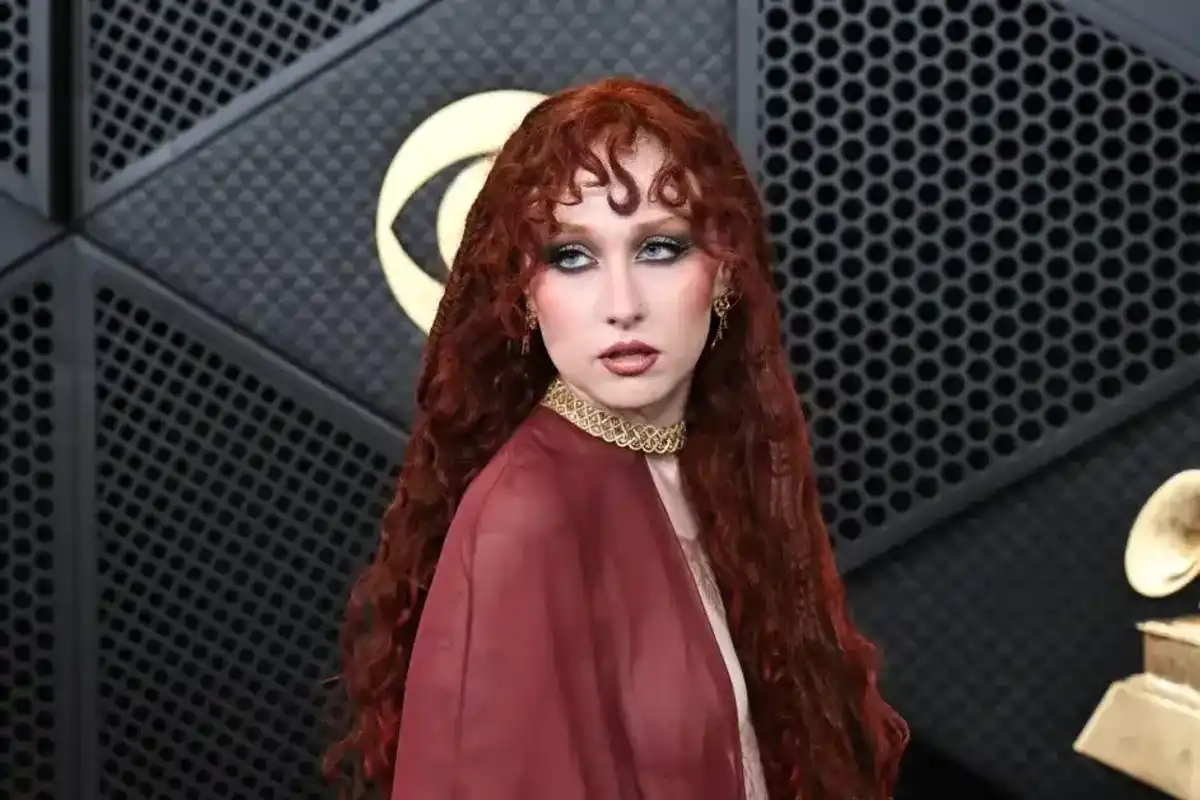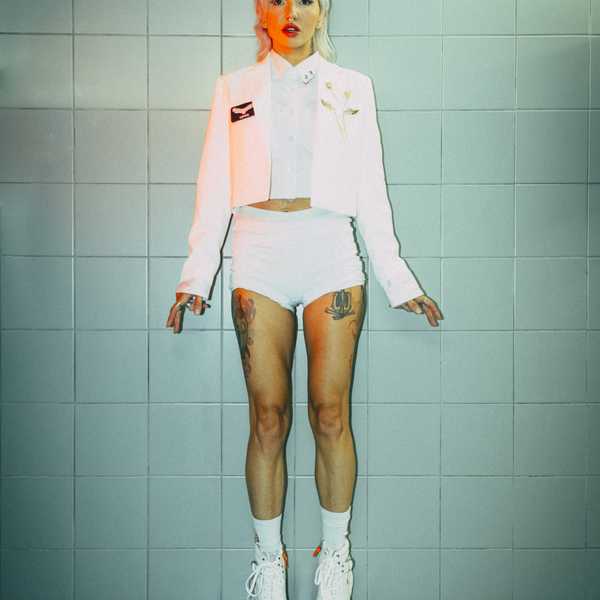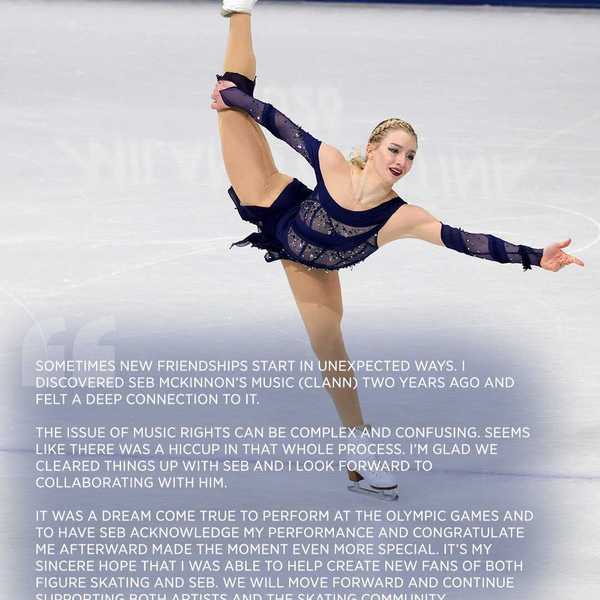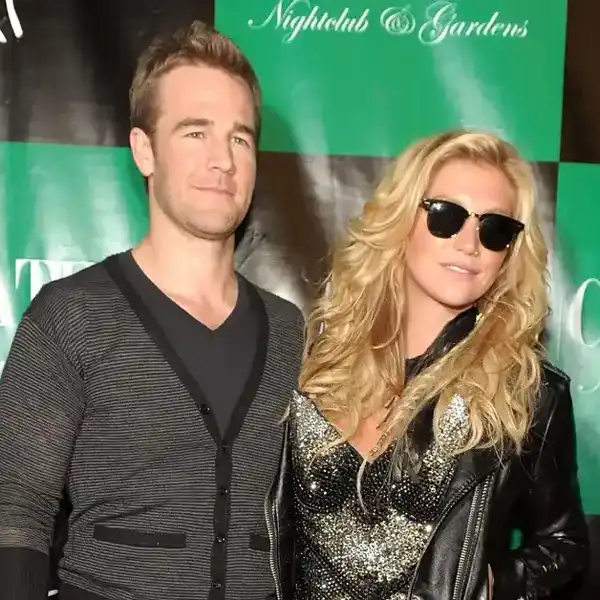A Conversation with Toronto Soul/Blues Singer Sandra Bouza
The award-winning artist gets confessional with Bill King.
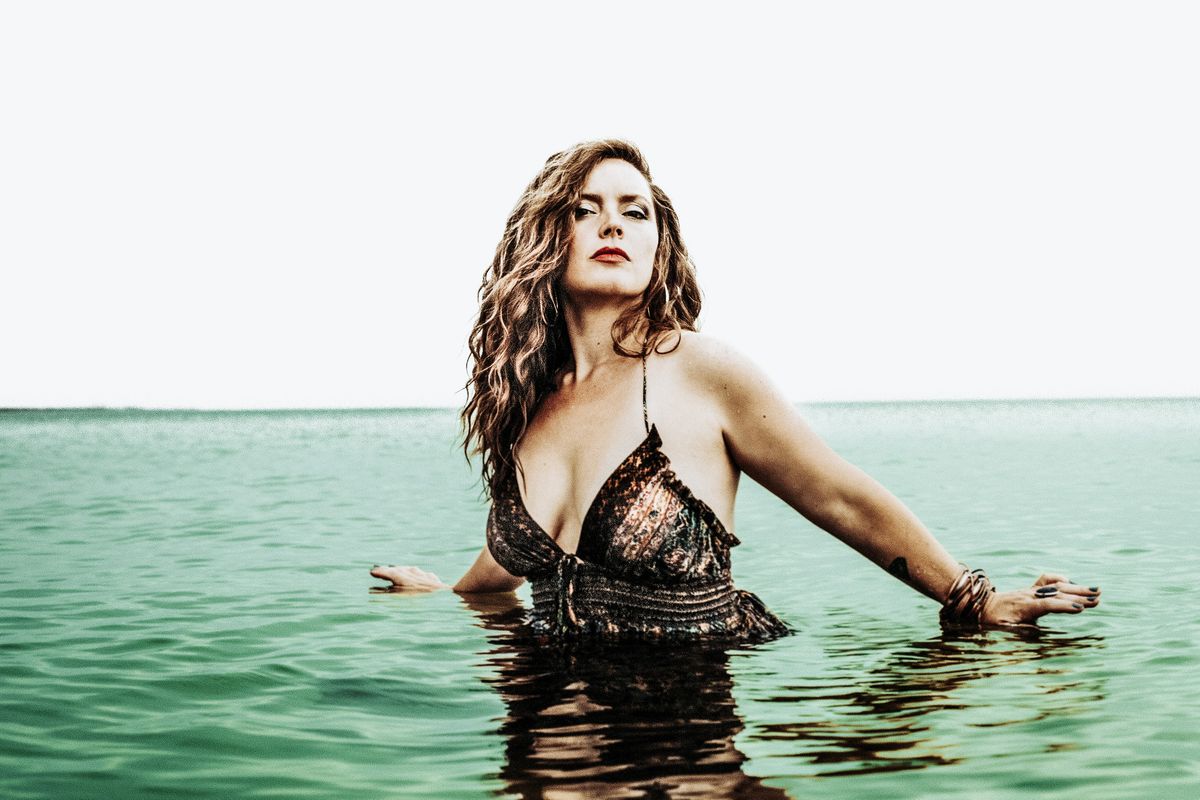
Sandra Bouza
In 2019, Sandra Bouza won the Toronto Blues Society Talent Search competition. With that came a photo session with me. The two of us walked the side streets of Kensington Market, looking for situations where colour and street life intersect. The merchant stalls, hanging tapestries, imported scarves and curio shops, anything that would serve as a backdrop to the subject. Five years passed, and Bouza and I reconnected. This time it was for a second CD release at the Redwood Theatre.
The real test for any artist is the ability to silence an audience through their presence. That gift. That aura. That command of the moment. Bouza does that.
Sandra Bouza's narrative unfolds against the dynamic backdrop of Toronto's cityscape and the contrasting hues of Spain, creating a tale that resonates worldwide — a quest for belonging that finds its expression in the cadence of her music. Her journey through dual identities and cultural complexities is a meticulously woven exploration intricately integrated into the fabric of her songs that defies conventional boundaries.
A perpetual outsider, Bouza skillfully translates the contradictions of her Canadian and Spanish roots into a musical landscape that transcends norms. Raised amidst transcontinental undulations, she developed a keen observer's eye, absorbing the rich Galician heritage and the eclectic notes from her mother's diverse record collection. This unique blend of influences forms the foundation of her artistic expression.
For Sandra, exploring the enigmatic world of music was more than just a natural progression; Her introduction to the Canadian music scene marked only the initiation of a transformative chapter, with an unexpected sojourn to Morocco extending her exploration for three years. This immersive experience pushed the boundaries of her artistry into uncharted territories, infusing her music with the unfamiliar.
Upon her return to Toronto, Sandra Bouza's journey reached a crescendo, marked by accolades such as the Toronto Blues Talent Search and securing the runner-up position in the city's prestigious Soul Slam. The promise in her earlier works, including Three Years and Falling Away From Me, foretold the emergence of a luminary in the musical cosmos.
In the crucible of creativity on Hall's Island, Bouza gave birth to her forthcoming album, A Sound in the Dark. This record is a harmonious convergence of her life experiences — an unapologetic revelation of her true self, a culmination of a musical metamorphosis.
Sandra's vocals echo the traditions of predecessors like Etta James and Carla Thomas, while the influences of R&B legends such as Amy Winehouse and Adele serve as a solid foundation for her distinctive style. Her nuanced phrasing, a delicate dance between power and subtlety, sets her apart within the contemporary vocalists' pantheon.
Yet Sandra's artistry extends beyond melody; once mirroring personal struggles, her lyrics have grown into a testament to sobriety and empowerment. In her words, "I won't always sing about recovery and getting straight. This is me, and these are songs of empowerment. I know where I am headed. I'm not looking back."
Sandra Bouza emerges not just as an artist but as a storyteller, inviting audiences to embark on a journey of self-discovery through the evocative compositions of her upcoming album. In an era characterized by fleeting musical encounters, she stands as a testament to the enduring power of an artist who transcends the superficial, leaving an indelible mark on the sonic landscape.
Through my recent series Conversations in All Keys from the Redwood Theatre, I met the artist in the café section.
A Sound in the Dark, by Sandra Bouza
11 track album
You recorded the album, A Sound In The Dark, planned the marketing, secured an event space, rehearsed the band, and then the big night arrived: a CD release at the Redwood Theatre. The night rolls by fast, and then what?
It's so true. I think about that a lot. I have anxiety. Especially with shows like this, because I came early to set it up and decorate it. You're doing promotion, and you're booking, you're rehearsing. So, it's true, a lot goes into it. And it's gonna be over like that.
Sometimes I get pre-show anxiety, like many performers, but I have a great group, and the crowd I knew was great, and the staff here is gracious. You know there will be a few mistakes here and there because that's normal, but you know it will fly by. I was worried I could damage the muscles in my cheeks from smiling because that night, I was over the moon.
It takes a while to relax. But once you fall into a groove, it's your safety zone. You can just be you and pace yourself. Communicate with the audience.
And sometimes if I'm finding it hard to settle, I tell the band I'm going to start solo with an acoustic song, usually "4 + 20" by Crosby, Stills, Nash and Young. The song settles me a bit. But I didn't need to do that here. I felt good about everything, and it was such a good crowd. I felt at home. I'm genuinely more comfortable performing live than in the recording studio because I've done so many live shows in my life. I worked overseas six and seven nights a week. Played all the little bars in Toronto before I started investing in myself and recording.
Speaking of overseas, you spent half your childhood overseas.
Yes. In Spain. I grew up in the mountains. It was an enormous sacrifice for my mom because she's from Scarborough. She grew up Irish Canadian, and then she married my dad, who's Spanish. She was a teacher, took our schoolwork, and plopped her into the mountains of Spain. I mean, rural.
She would homeschool us for four or five months every other year. My sister and I had each other, and we would run around the mountains and explore. My grandparents and aunt loved her, and I think they knew what she was doing for us so we could know our family. That meant a lot to them.
It's also the origin of songwriting in that region of the world, storytelling and how songs come together. Andalusia.
It's a Celtic region. We have bagpipes. When people think of Spain, they think of flamenco, which I love, but this part of Spain is Celtic. There's such an interesting storytelling history. One of my favourite artists, Carlos Núñez, did this song called "A Lavandeira da Noite," and we did a version. It's so lyrical in the storytelling, in that tradition. It's really narrative. I instinctively pull from that style in my music.
I leaned more toward North American culture, probably because my mom had a more significant influence on us. My dad worked a lot, so my mom always had 1050 CHUM on the radio. She would drill us whenever a song came on, asking, "Who is this?" The Beatles! What album?" I didn't even know there was modern music until I went to school. I think it was grade one. I'd never heard of New Kids on the Block. I attended St. Jude's. Finch and Weston. After that, we moved to Markham when I was in high school. And then, I went to school in Hamilton and moved to Scotland to do my Master's.
Your Master's in what?
Museum Studies. I think I always loved the parallels in storytelling through history. What could be better? They strongly discouraged us from pursuing music as a career when we were young. My parents wanted stability for us. You can't do music. My sister and I are now both in music. So, we both looked at different things to go into. History was a huge passion of mine. I'm still a huge history nerd. If I worked in museums, it would be like a career of stories. Telling somebody else's stories, our story, and I see the parallels in that music. Like what I love about music, somebody could write a song 20, 30, 50 years ago about an emotion they're having. And then you could listen to that song today and completely identify with the wording and how this person feels today.
Much like a photo capturing a specific moment in time.
I'm a huge fan of Neil Young. I've seen him seven times. There are spiritual moments you have with certain songs, and my first musical spiritual moment was Neil Young listening to "Old Man." I remember my mom had this old cassette tape, and it had a bunch of random songs, like Neil Young, "Total Eclipse of the Heart," but I remember hearing "Old Man" and thinking, 'what is this?' It's just such an atmosphere. I wanted to take that apart when I started writing songs. I was trying to challenge the whole chick with a guitar thing, which is just ego. I hated that trope. Whenever I picked up a guitar and wanted to sing, somebody would say, "Are you going to do a Jewel song?" I always tried to write more complicated, over-complicated — a lot of words, time signatures, a lot of everything. And then I remember hearing this Neil Young song, and it was so simple, but it had such an atmosphere. And to achieve that simplicity was so powerful. I wanted to dig that apart.
And it's exciting to play with words and sentences, to explore how a word wraps itself around a tone or note.
I love Harry Manx. I heard him speak at this Blues Summit a few years ago. And I remember him saying, I never waste a word. There are no throwaway words. And I love that because I've always felt that way. If there's a word I don't like, it bothers me. I don't like just to put it in because it fits, rhymes, or phonetically. It must mean something, and it has to say something, it has to flow.
Talking about words. People would send me recordings to review. I'd get 30 seconds in, hear the lyrics, and pass. No throwaways, please.
Oh yeah, I hear that all the time. If it's ‘throwaway’, it kills everything. I may spend the next 30 seconds or 60 seconds going. What does that mean? But why? There are other times where it's the direct opposite, where you hear a line and you're like, oh my god, what a line, what a lyric, I love that.
You've got a great voice. To seal that gap between the words, the voice, when all things come together, there must have been artists beyond Neil Young that pulled it together in your head and heart.
My mom. We had a great musical education. She was always singing to us. We always had music in the house. She ensured we had culture.
We grew up at Finch and Weston. My dad worked really, really hard. When we were kids, we didn't have a ton. We started learning piano on paper drawn out on a keyboard. My mom would make sure she took us places. To see musicals. Like, Crazy for You. We learned about Gershwin — Phantom of the Opera. My sister and I would sit on the rooftop of our garage and sing the entire musical, the spoken word, the dialogue, everything, from start to finish.
I mean, this is what we were doing for fun, right? So singing was always there. My sister is an opera singer. She's amazing. You should hear her do her thing. Woo! The clarity and purity in her voice.
The first time I heard a singer I wanted to sing was Ella Fitzgerald. My mom didn't really sing a lot of jazz, but when I discovered jazz, I remembered Ella Fitzgerald. I just couldn't get enough. And I wanted to sing everything like Ella Fitzgerald. And I remember once we were trying to sing something for some family function, and I was having trouble getting the phrase or something. My sister was trying to give me tips. And she said, Sing it like it jazz. And I sang it, and I got it like that.
What about the blues?
I always liked blues. I've always loved listening to blues. But I never called myself a blues singer. And I never wanted to. I wanted to be careful about associating myself with blues music because it came from a particular place. But I kept getting called a blues singer. Even like my first album, I don't talk about it much. I recorded an EP in Vancouver, and nothing is blues. There's nothing. It's almost Canadiana, and somebody was like, wow, what a great blues singer, I'm like, what?
You mentioned the Blues Summit. Do you know Dawn Tyler Watson? She's a good friend of mine. I've known her for years, and she kept saying, enter the blues competition, enter the blues competition. And I kept saying, I'm not a blues singer. In 2018, I joined to shut her up so she could leave me alone. Paid my ten dollars, and then I won it. Now, she'll never shut up. I felt I needed to be exceptionally careful about identifying as a blues singer because appropriation and appreciation can blur lines.
Then the pandemic hit.
I released an album before the pandemic. February, I think 15th, 2020, was my album was released. Then everything shut down. Great business plan, right?
You said you've played a lot of gigs to keep the dollars flowing. What kind of gigs?
I was in Morocco for a while and then in Senegal for a bit. Those were hotel gigs. Nightclubs doing show band stuff. I didn't dig that as much. I really dug when I started doing the lounge stuff as a duo. I had one of my favourite guitar players, and one of my favourite coworkers was Kevin Cummings, from Brooklyn. Do you know the song "Funkin' for Jamaica" by Tom Browne? He played on that. He's awesome. His first professional gig was opening for Parliament Funkadelic. He also toured with the Commodores, like a super cool dude. And I remember we met at the Soundtrack, and then we played that night. I think we rehearsed only one time in two years. We just knew all the same stuff. But also wrote things on the spot. It was so freeing playing with him. Because he knew where I was going to go. I knew where he was going to go. We did all the same covers. He sings, and he plays the piano. We were musical brain twins a little bit. I still have a great duo partner, Mike Friedman, in Toronto. He's a jazz guy.
What's this Hall Islands retreat you did?
In Haliburton on Long Lake. I was just writing music by myself for ten days on this island. Writing tunes, looking out, and swimming. There was nothing on the island. The island is where I wrote A Sound in the Dark.
Have you heard this story? I tell it every time I play this song, except for the album release, which is funny. So, in A Sound in the Dark, I went skinny dipping. Because this is like an island. There's nobody there, right? Perfect. I go for a swim. I'm in the water for about two seconds, and I hear a sound. I get freaked out, and I run back up to the cabin. Suddenly, I’m so angry at myself, knowing it was this beautiful night and probably nothing. It was perhaps a fish jumping.
There were no black bears on this island. I was so mad at myself that I wrote that song that night out of anger. I started thinking about all the other times that fear had stopped me. I'm 40 years old and have just started investing in my career. I think a lot of that is fear of failure, fear of success. It's the same thing. I started thinking about fear stopping me from so many things in my life. I know it was just a skinny debate experience. You see, it started spiraling into all the other stuff. I had to accept that because most people must follow a particular path and won’t step out to take a chance or believe in themselves enough.
How are you with travel?
I love staying in hostels. And I would always stay in them in New Orleans. I stayed one week in the Garden District and one week in the French Quarter. I still have people I talk to there. You always make a little family in a hostel. People who you stick with when you travel and do things. And then you go somewhere else and find new people. Or you do stuff alone.
When I went to Paris, I specifically didn't want to travel with anybody or meet anybody. I just kept to myself and wandered about. I love getting lost in cities. That's the way to do it.
A person in Tokyo taught me a great lesson. Keep a pack of business cards from the hotel or residence where you are staying. Get lost, then hand to a taxi driver and say go.
It's the best way to find cool areas.
Barcelona, I just got lost and walked about 30 kilometres daily. I found all these cool neighbourhoods. This is where great stories come from, like when I was talking to somebody earlier today about this in Rabat, Morocco.
I decided not to bring my acoustic and would buy one there. I wasn't doing acoustic stuff at this gig. But I wanted to buy one to play on my own. So, I found this little music store in Rabat and bought this little guitar. I talked to the owner and did that contract for a month and a half.
I would go back to have coffee with the store owner. He would make me a coffee. And he didn't speak excellent English, and I didn't speak great French. We communicated as best we could. I think he and I enjoyed the interaction.
I love going into a coffee shop and having people know who I am and what I drink. I worked at The Old Nick. Do you remember The Old Nick? From Danforth? I loved the regulars that would come in. I'd see them at the door. You'd know whatever they wanted by the time they were in their seat — the same in Morocco. I'd walk in the door, and he'd be like, Café! I'd be like, yep. And we would sit there, engaged in a mishmash of conversation, which was incredibly cool.

